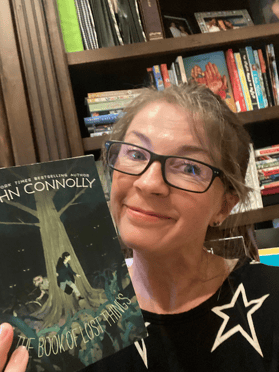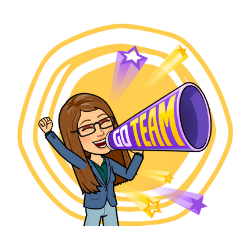Author John Connolly is a well-known Irish writer and a New York Times Bestselling Author living in Dublin, Ireland, and Western Maine. The Book of Lost Things was the 2007 winner of the Alex Award. John Connolly writes for the Irish Times newspaper and is the author of The Gates.
Overview
When I was getting my undergraduate degree in English, I took a children's literature course, and one of the required readings was Grimm's Fairytales. I was shocked to read how graphic and horrible nearly all the stories were. I wondered how enjoyable they had been for children.
Jacob and Wilhelm Grimm were German academics who are among the best-known storytellers of German and Scandinavian folk tales. Some of their best-known tales are Cinderella, Little Red Riding Hood, Sleeping Beauty, Snow White, and Rumpelstiltskin. If you've never read the original versions of these stories, you'll get a taste of what they're like when you read The Book of Lost Things... they are nothing like the Disney versions that many of us have come to know and love. They're scary, to say the least!
Why I Chose This Novel
The Book of Lost Things is about a boy named David, who experiences the terrible loss of his mother right at the start of the story. David struggles to accept this loss and is terribly upset when his father remarries a woman named Rose, and they have a baby named Georgie. David loses himself in the books he surrounds himself with and eventually finds that he has entered a world as mysterious as the stories he has been reading. David finds that he is on an incredible adventure fraught with danger as he struggles to deal with emotions of fear, rage, resentment, love, and loss. Apart from discussing these feelings, other SEL themes include family, friends, courage, making decisions, values, perseverance, relationships, and sacrifice. The topics and imagery are definitely for a more mature young reader, especially if they've never read anything like the original Grimm stories. However, it's a wonderful tale—exciting and full of adventure. I enjoyed it immensely!
Socratic Seminar Prompt Questions
Losing someone you love can be unbearable, and David tries everything in his power to save his mother. The things David does to try to control the situation do not work. Some things are just not in your power to control.
- What are some of those things, and what can you do to help deal with the situation that might work?
David's mother told him, "Stories wanted to be read".
- What do you think she means by this?
David describes how he learns of his mother's death. As you read that paragraph on pg 4, how did you feel?
- Could you identify with his description?
- How would you say David was feeling?
David blames himself for not saving his mother. He says he's "ashamed at his failure."
- What advice would you give to David as he tries to deal with his mother's death?
- Is it really his fault?
David describes his mother's funeral. Other cultures have different funeral customs. Discuss the differences.
- Why do we have these customs?
- What is the purpose?
David describes what he thinks death is like. He says "That was what death was like: trapped in a small space with a big weight holding you down for all eternity."
- What do you think death is like?
In order for David to try to deal with his mother's death, he tries to lose himself in his books.
- What other ways might David have tried to deal with his loss?
- Do you think his solution is the best one?
Emozi® Middle School Lesson Connections
Grade 6 
Unit 1
- Lesson 2: Understanding and Building Self-confidence and Self-esteem
- Lesson 3 Understanding and Appreciating Character Strengths
- Lesson 9 Teamwork and Collaboration
- Lesson 10 Decision Making
- Lesson 11 Values
- Lesson 12 Responsibility and Accountability
Unit 2
- Lesson 3 Grief
- Lesson 4 Identity
- Lesson 6 Diversity
- Lesson 7 Healthy and Unhealthy Relationships
- Lesson 12 Jealousy and Envy
Unit 3
- Lesson 1 Resilience
- Lesson 3 Fear Less
- Lesson 10 Leadership Skills
- Lesson 12 Perseverance and Hope
Grade 7
Unit 1
- Lesson 3 Strengths and Weaknesses
- Lesson 4 Confidence
- Lesson 5 Flexible Thinking
- Lesson 7 Morals
- Lesson 11 Conflict
Unit 2
- Lesson 4 Stereotypes and Implicit Bias
- Lesson 5 Fear
- Lesson 7 Overcoming Obstacles
Unit 3
- Lesson 1 Dealing with Disappointment
- Lesson 5 It's Ok to Fail
- Lesson 7 Resilience
- Lesson 9 Being Responsible
- Lesson 10 Forgiving
Grade 8
Unit 1
- Lesson 4 Problem Solving
- Lesson 7 Belonging and Rejection
- Lesson 10 Ethics and Integrity
Unit 2
- Lesson 1 Rules for Life
- Lesson 2 Human Variation
- Lesson 5 Be a Team Player
- Lesson 9 Conflict
- Lesson 11 Leadership Skills
- Lesson 12 Loss
Unit 3
- Lesson 4 Prejudice and Racism
- Lesson 12 Standing Up for Yourself
Please visit our website to see if Emozi® Middle School is right for your classroom!
Extend SEL to Your staff With My New Book
The Social Emotional Classroom:
A New Way to Nurture Students and Understand the Brain



